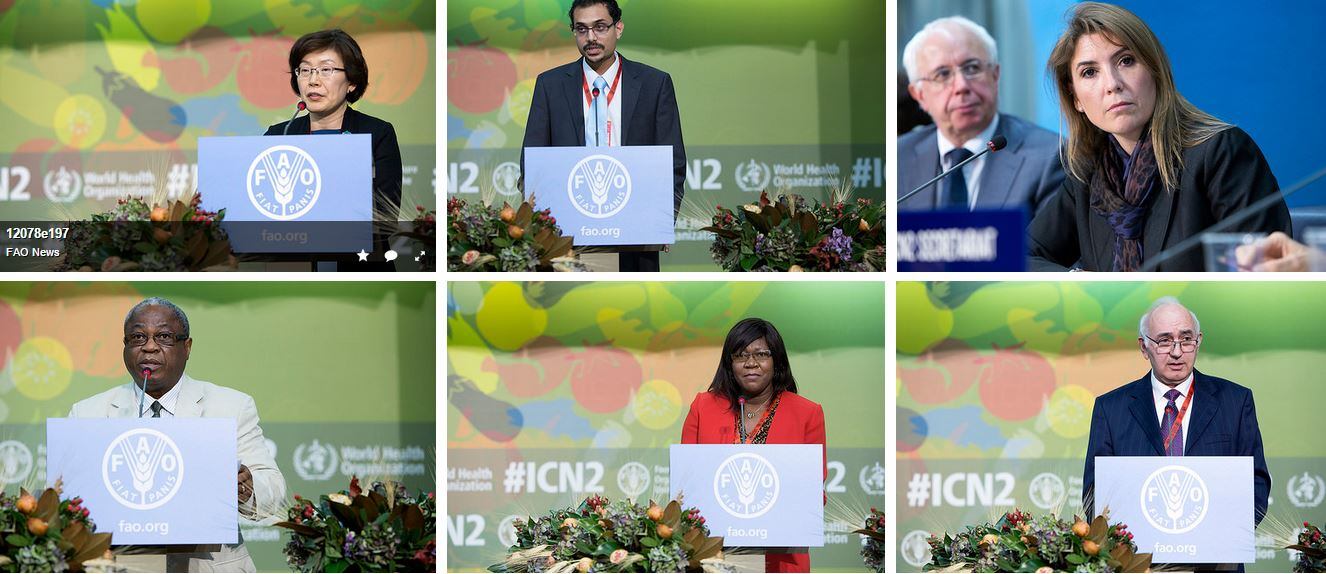“Although the nutrition community is constantly engaged in political economy in practice, the capacity for systematic analysis is limited,” wrote Michael R Reich and Yarlini Balarajan from the Department of Global Health and Population at the Harvard School of Public Health.
“Thus, more systematic application of political economy analysis for food and nutrition security, along with serious capacity development in this field, could help implement nutrition reforms.”
They said nutrition could not advance without, “explicit recognition of the roles of politics, economics, and institutions in shaping what happens.”
This was so even though, “the economic argument to invest in nutrition is well developed, supported by cost-benefit analyses and studies that quantify the cost to scale up interventions.”
Rome drives nutrition change home
Many of these considerations were discussed at the Second International Conference on Nutrition (ICN2) that was held in Rome in November. There, various stakeholders agreed on and produced a 60-point plan to tackle the world’s malnutrition problems that span both over- and under-nutrition.
“Building on existing commitments, goals and targets, this Framework for Action provides a set of policy options and strategies which governments, acting in cooperation with other stakeholders, may incorporate, as appropriate, into their national nutrition, health, agriculture, development and investment plans, and consider in negotiating international agreements to achieve better nutrition for all,” the World Health Organization (WHO) and Food and Agriculture Organization (FAO) said at the time.
Obstacles

Professors Reich and Balarajan said better understanding of political economies could expand the horizon and potential impact of nutrition policy globally, nationally and sub-nationally.
It, “broadens the operational lens to look beyond technical solutions, sensitising practitioners to the roles of power, incentives, institutions, and ideas that shape policy processes in reality.”
They added: “Expansion of conceptual horizons is particularly relevant for nutrition: our review of the literature on the political economy of food and nutrition security showed how these factors create a powerful web of obstacles to achieving nutrition security.“Although the nutrition community is constantly engaged in political economy in practice, the capacity for systematic analysis is limited.
“Thus, more systematic application of political economy analysis for food and nutrition security, along with serious capacity development in this field, could help implement nutrition reforms.”
Measures could include in-depth political economy analyses to rapid-assessment studies.
“The field of global nutrition has an urgent need to bring political economy analysis into the consciousness of policy advocates, policy analysts, and policy makers,” the two nutritionists concluded.
“Mainstreaming of applied political economy analysis can increase the development effectiveness for nutrition and increase the likelihood of politically feasible reforms that fit the local context.”
